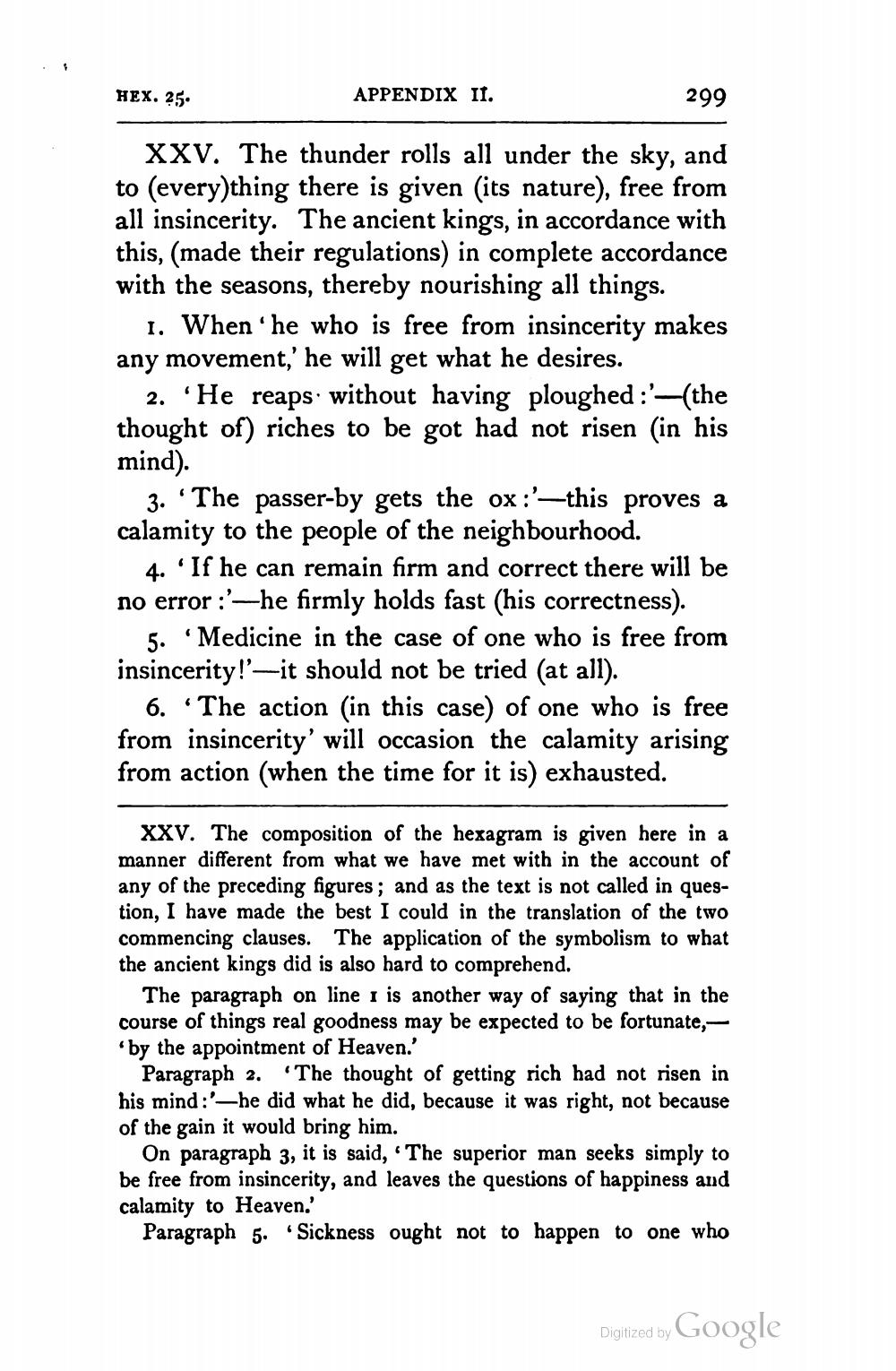________________
HEX. 25.
APPENDIX II.
299
XXV. The thunder rolls all under the sky, and to (every)thing there is given (its nature), free from all insincerity. The ancient kings, in accordance with this, (made their regulations) in complete accordance with the seasons, thereby nourishing all things.
1. When he who is free from insincerity makes any movement,' he will get what he desires.
2. He reaps without having ploughed ::---(the thought of) riches to be got had not risen in his mind).
3. 'The passer-by gets the ox:'—this proves a calamity to the people of the neighbourhood.
4. If he can remain firm and correct there will be no error :'-he firmly holds fast (his correctness).
5. Medicine in the case of one who is free from insincerity!'-it should not be tried (at all).
6. The action in this case) of one who is free from insincerity' will occasion the calamity arising from action (when the time for it is) exhausted.
XXV. The composition of the hexagram is given here in a manner different from what we have met with in the account of any of the preceding figures; and as the text is not called in question, I have made the best I could in the translation of the two commencing clauses. The application of the symbolism to what the ancient kings did is also hard to comprehend.
The paragraph on line 1 is another way of saying that in the course of things real goodness may be expected to be fortunate, - by the appointment of Heaven.'
Paragraph 2. "The thought of getting rich had not risen in his mind :'-he did what he did, because it was right, not because of the gain it would bring him.
On paragraph 3, it is said, "The superior man seeks simply to be free from insincerity, and leaves the questions of happiness and calamity to Heaven.'
Paragraph 5. "Sickness ought not to happen to one who
Digitized by Google




